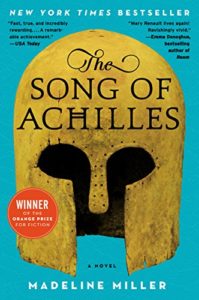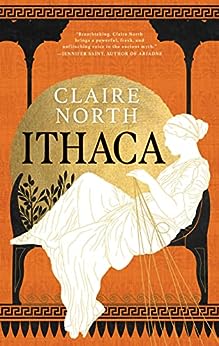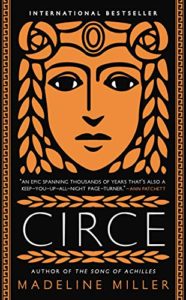Ithaca (The Songs of Penelope #1) is an interesting retelling of The Odyssey, centered on Odysseus’s wife, Penelope, who he left behind when he went off to fight the Trojan War. Eighteen years later, she is still alone. Her son Telemachus is growing up, but her kingdom is considered up for grabs since everyone thinks Odysseus is dead. She walks a fine line trying to keep her kingdom from being conquered and her son out of assassins’ hands. The narrator is Hera, the goddess wife of Zeus, and with a unique voice. She’s a goddess “of a certain age,” getting plumper with time, who sees the gods and goddesses in Olympus though unflinching eyes. She’s proud, snarky, and often laugh out loud funny as she handles her stepdaughters, Artemis and Aphrodite, who have chosen sides in this conflict, and voices her opinions on her husband, Zeus, and his love affairs and his tendency to disguise himself as swans and other creatures. Hera herself choses to back Clytemnestra, Penelope’s cousin, who has just murdered her husband, Agamemnon, and fled to Ithaca for sanctuary.
The story shifts between past and present tenses and is told in multiple points of view, ranging from third person omniscient, third person limited, second person, to first person. For me, the technique worked, as it emphasizes Hera’s omniscience and allows author North to show a more complete story than would have been possible if written solely in Penelope’s point of view. While the prose never reaches the epic quality that Madeline Miller does in The Song of Achilles and Circe, I enjoyed Hera’s wit and found her an interesting narrator.
********************
Ithaca (Redhook, September 6, 2022) is available through:
********************

********************
This post may contain Amazon Affiliate links. As an Amazon Associate, I may earn a small amount from qualifying purchases at no cost to you.














